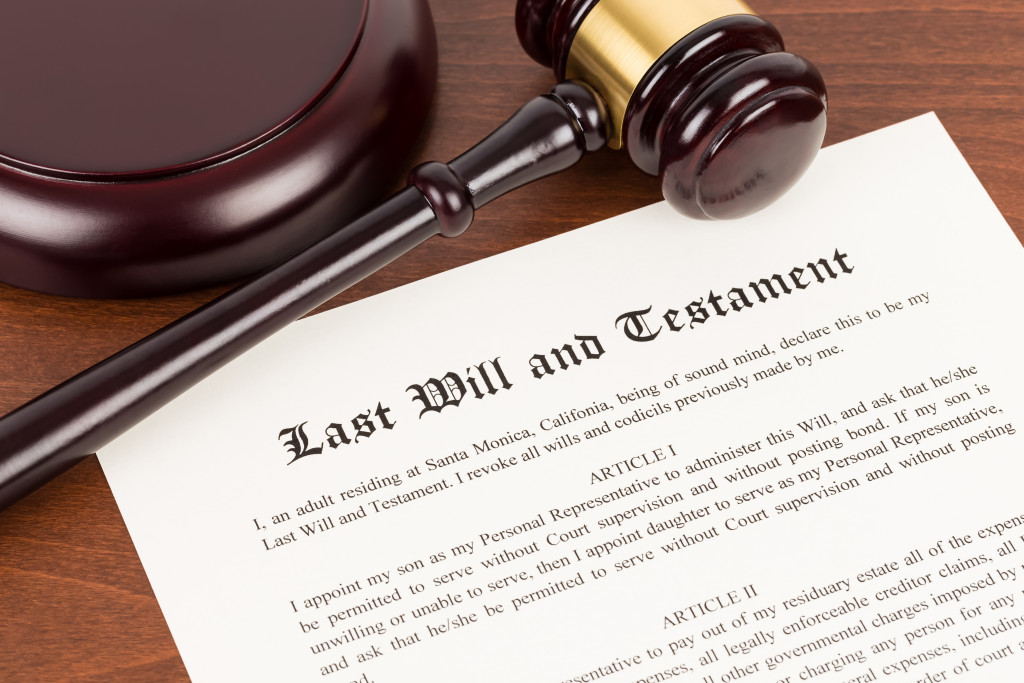If you are one of the fortunate few who have accumulated wealth in their lifetime, you have likely devoted significant time and effort to this achievement. You would, expectedly, want to secure your legacy after you pass. The current global crisis caused by COVID-19 saw a rise in individuals going into estate planning, though many Americans still have not. Either they assume that their assets are not significant enough to require a last will or that their properties will go to their next of kin by default. Unfortunately, neither of these assumptions is true.
Last will and testaments are legal instruments that communicate an individual’s instructions relating to their dependents and assets after they pass on. A last will stipulates which goes to whom, when, or how much. It outlines how possessions left behind will be disbursed, whether within the deceased’s family or to an outside entity such as charities or non-profits. A last will can also specify custody of dependents, relaying of accountabilities, or who will be left in charge of managing financial interests.
Why You Need a Last Will and Testament
Should you decide to write out a last will and testament, you can name a surviving individual as the executor of your estate. This executor will be the individual who assumes the responsibility of administering your estate. This individual will be supervised by the probate court, helping to ascertain that the specific mandates of the last will are carried out.
Since it is a legal document, it is ideal that you begin drafting a last will and testament under the professional advice of an estate-planning attorney. Your last will and testament will be the ruling document to be used by the probate court in the course of settling your estate.
Take note that assets not already assigned to a beneficiary are not considered probate assets. Qualified retirement plans, insurance policies, and the like are automatically transferred to their beneficiaries.
Should you die before you can establish a last will and testament, you are considered to have died intestate. Dying in intestacy means there is no presiding will, so the probate court, on behalf of the state, will act as executor of your estate. The state decides how to disburse the assets and the recipients in priority. Intestacy also applies when there is a presiding will that has been deemed invalid by the court.
Anybody related to you by blood can stake a claim to your estate. The court can also enforce arrangements for guardianship if it is judged to be in the best interest of your dependents.
In most states, probate laws distribute assets among the surviving spouse and children. If you die intestate and you have several properties in different jurisdictions, your estate will be divided according to the applicable community property laws in each jurisdiction.
Your surviving spouse is typically the first-in-line recipient of your estate, entitled to at least 50% of it. The other half will be divided among your children. Your spouse will receive your estate in its entirety if you have no children. If you are widowed or unmarried upon your death, your estate will be distributed among your children, then other next-of-kin. In the absence of such, the state will assume ownership of your estate.
What You Need for a Last Will and Testament

You will likely need to appoint an executor, specified in your last will and testament. This is ideally a close, trusted individual whose primary responsibility is to direct the distribution of your estate according to your wishes. If you have minor-aged children, you should assign a legal guardian to who your young children will be entrusted upon in the event of your untimely passing.
A last will and testament will be deemed valid only if signed by a person of sound mind and free of coercion. Many states likewise require that a last will and testament be signed in the presence of at least two unrelated witnesses of legal age.
Essentially, a last will and testament is a legal instrument guiding the courts as to how an estate is to be distributed in the event of death. Aside from specifying the disbursement of monetary assets, it may stipulate guardianship for dependents (including children with special needs or aged parents). Establishing a will allows you control over the management of your assets upon your death. If you die in intestacy, the state assumes responsibility or ownership of your estate.

